-
Strategy
At Bergner, we are committed to protecting the environment and we prioritise the necessary actions in order to minimise potential impacts, both of our operations, and the products that we offer our customers. The preservation of natural capital and the implementation of the principles of the circular economy are key aspects when it comes to developing a sustainability model, in addition to the internal eco-efficiencies and climate action.

Through the commitment of our collaborators, we optimize the efficient use of natural resources and develop initiatives aimed at preventing, mitigating, and compensating for environmental impacts. From the design to the distribution of household items, we promote practices that support biodiversity conservation and ecosystem resilience, fostering a more sustainable value chain aligned with the protection of the natural environment.
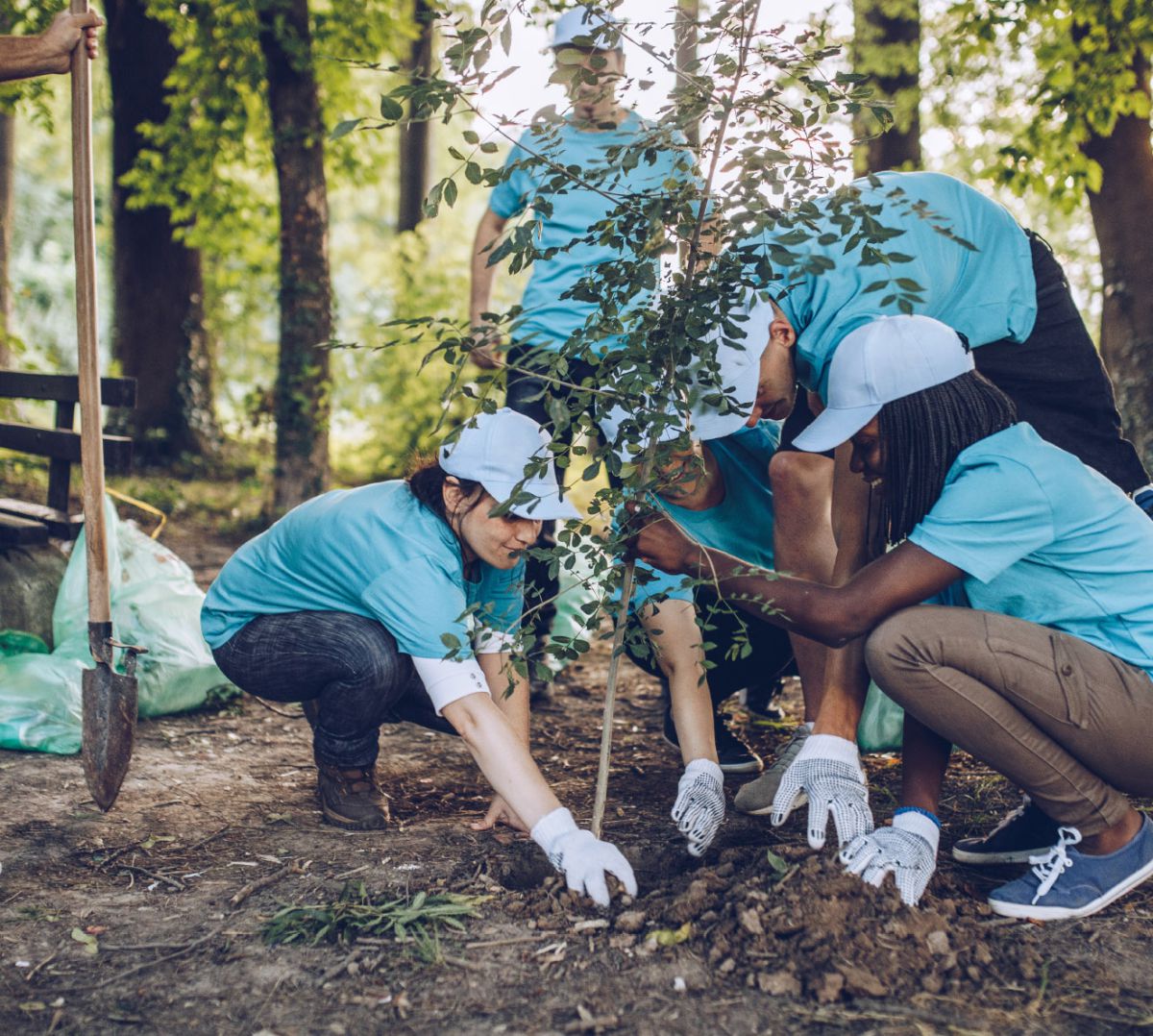
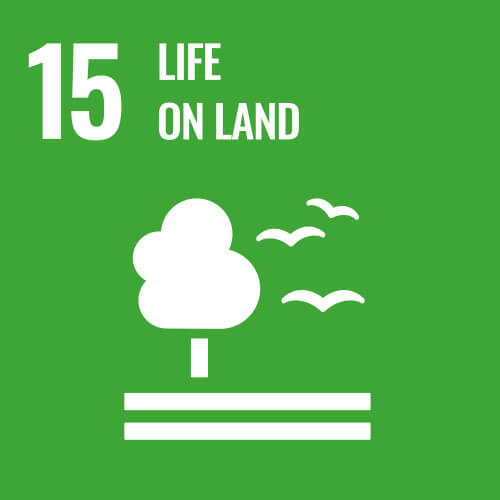
Reforestation is a key action for the conservation of natural capital and the survival of all forms of life on our planet. For this reason, Bergner actively collaborates in forest restoration and tree planting projects, in partnership with specialized organizations. These initiatives help to restore areas of high ecological value, strengthen biodiversity, and foster collective environmental awareness, while also generating a positive social impact in local communities.


Bergner has placed a strong focus on the sustainability of its offices through the implementation of energy efficiency measures, the use of sustainable materials, and the offsetting of its carbon footprint. These actions contribute to creating more responsible, resilient workspaces that are aligned with the principles of sustainable development, thanks to the active commitment and participation of our employees, who play a fundamental role in building an organizational culture oriented towards respect for the environment.
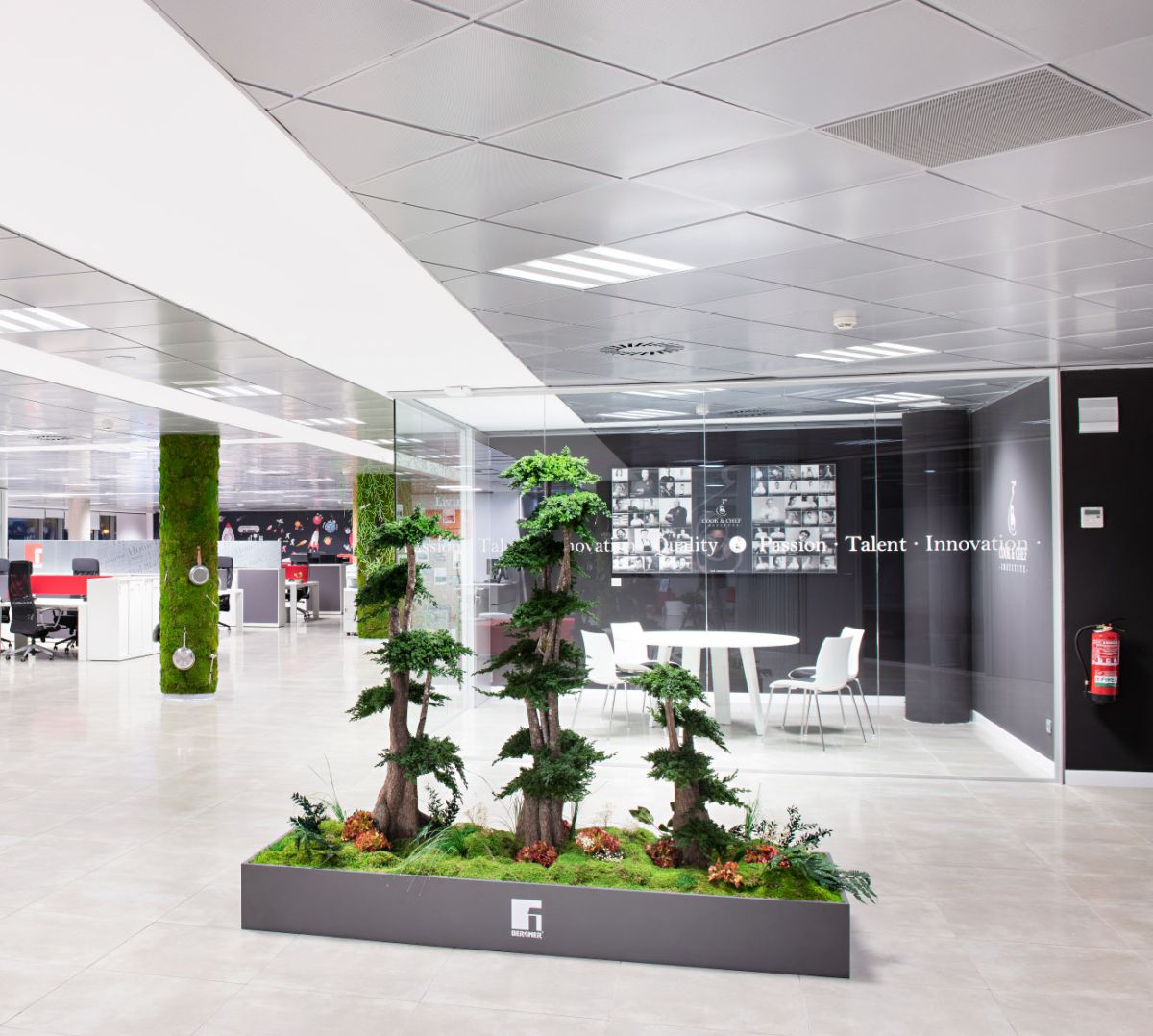
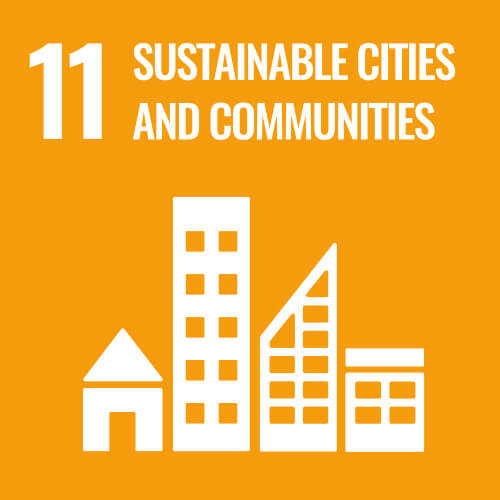
For several years now, we have been implementing initiatives that show respect for our environment — using recycled paper, launching recycling programs, or upgrading our facilities with the goal of reducing consumption. However, we want to keep moving forward, researching, and seeking new solutions and methods that will allow us to give back to nature everything it has done for us.
WITH SMALL GESTURES, TOGETHER, WE CAN ACHIEVE IT
Implement a comprehensive recycling system in offices.
Waste management using the 3R principle with partners such as ECOEMBES.
Use recycled paper for essential printing.
Increase risk prevention measures and improve health and hygiene conditions.
Set up five recycling stations for waste separation.
Encourage the use of eco-friendly products: office and cleaning supplies.
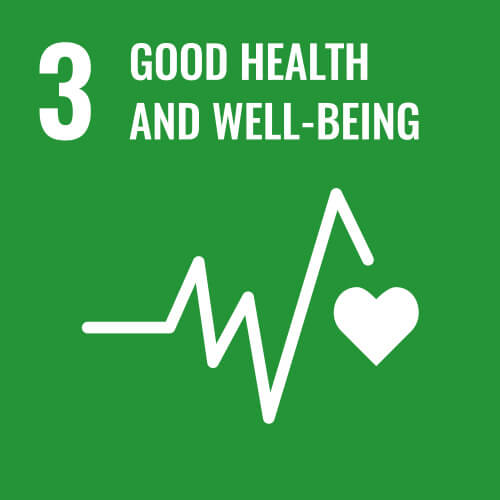
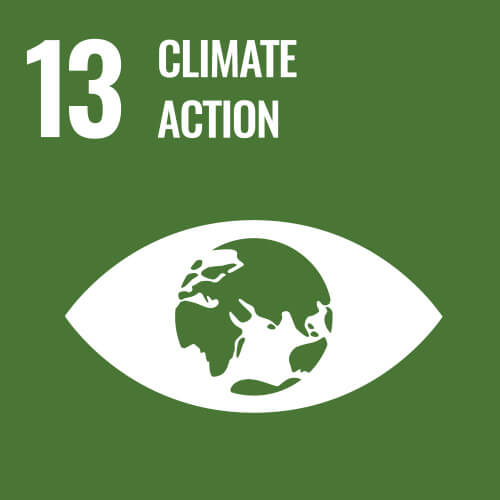
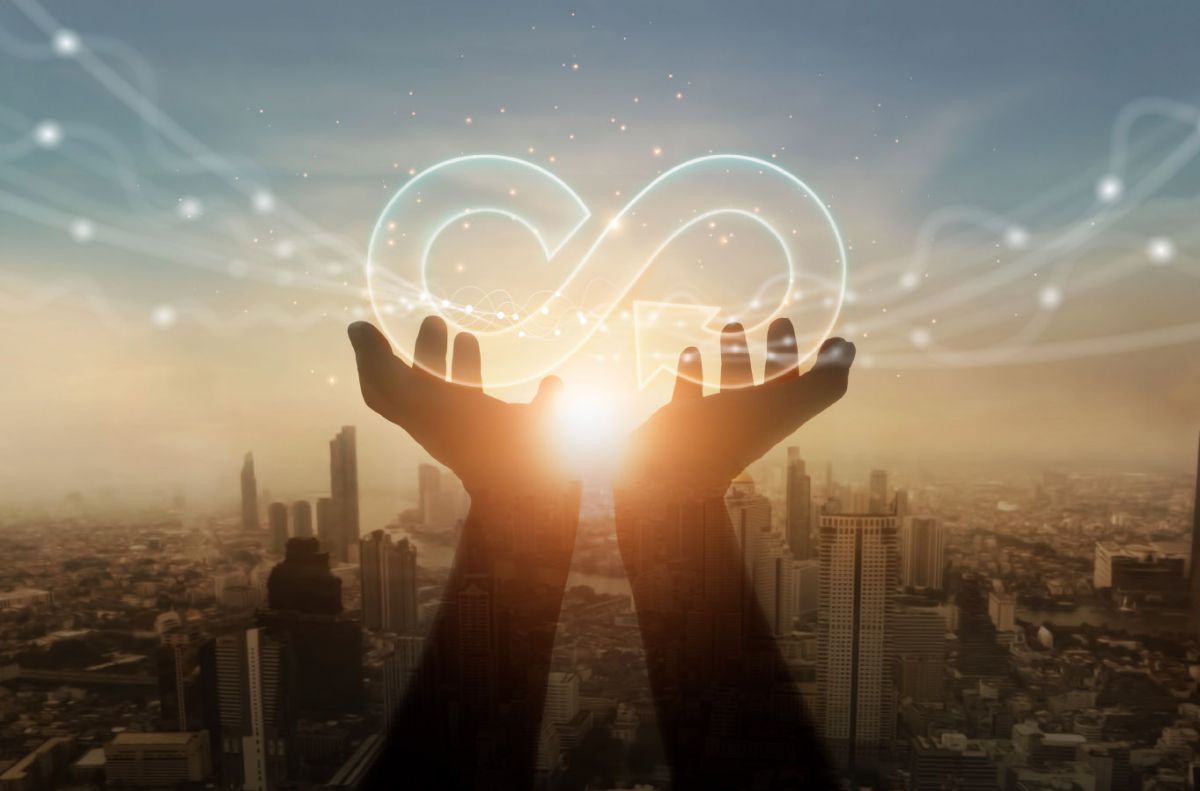
Bergner promotes sustainable practices throughout its entire value chain by integrating circular economy principles and prioritizing efficiency in the use of natural resources. This is reflected in the incorporation of eco-design criteria in the development of household products, aimed at extending their lifespan, facilitating repair, reuse, and recycling. Likewise, a responsible selection of raw materials is carried out by both the company and its strategic partners, prioritizing recycled, recyclable, and low environmental impact materials. Through these actions, we promote more sustainable consumption patterns among our customers and actively contribute to the transition towards circular, regenerative, and environmentally respectful production models and lifestyles.

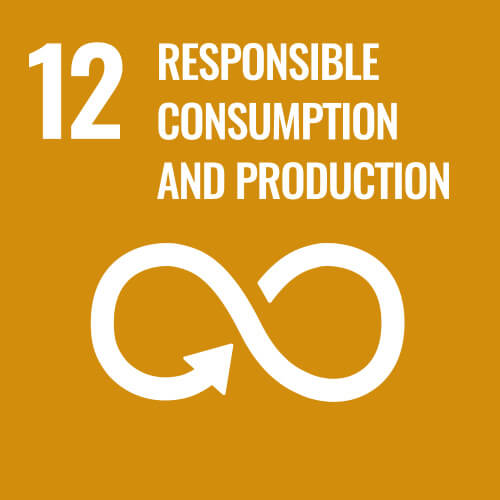
Through eco-design, material innovation, and resource optimization, we reduce waste generation, promote energy efficiency, and foster solutions that encourage responsible consumption. In our cookware and home textile lines, we prioritize the use of recycled and sustainable materials, extend product lifespan, and facilitate recyclability at the end of the product life cycle.
Key actions:
Elimination of PFAS and other harmful substances.
Use of recyclable and sustainable materials.
Packaging optimization, achieving a 30% reduction in packaging size.
Reuse of packaging within the supply chain.
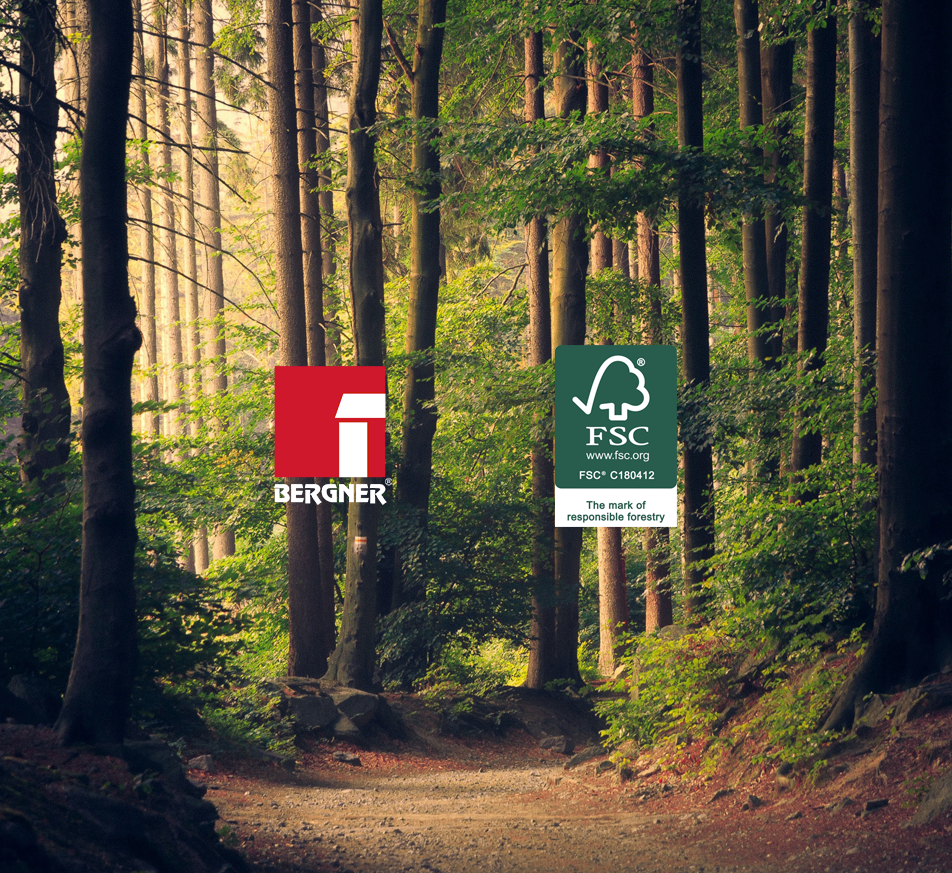
Bergner Europe has documented, implemented and certified the FSC® (Forest Stewardship Council®) Chain of Custody.
Bergner Europe promotes environmental protection and circular economy, advocating the implementation and maintenance of good practices in forest management.
We are committed to contribute to responsible forest management through the choice and use of FSC ® (Forest Stewardship Council) certified sources and products for the products we distribute and market.
It is for this reason that we want to share with our stakeholders that we are an FSC® (Forest Stewardship Council) certified company.


We offer products certified with OEKO-TEX® STANDARD 100 at its most demanding levels, from home textiles to items intended for babies. This international certification provides consumers with confidence by ensuring that textiles meet strict ecological and chemical safety criteria, thereby contributing to more responsible, transparent production committed to people’s well-being and environmental sustainability.
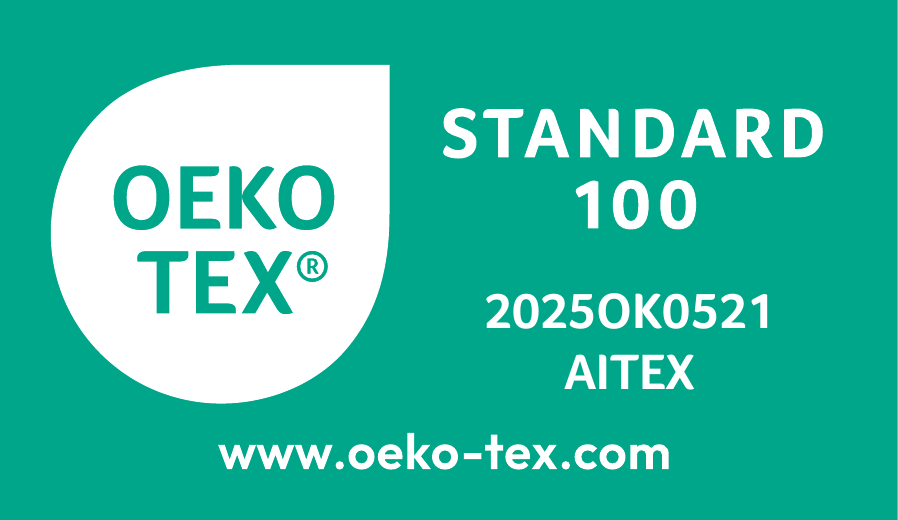
In cookware and home textiles, we prioritize sustainability throughout the entire life cycle of our products. We apply circular economy principles by optimizing production processes, minimizing waste, and promoting reuse and recycling practices. We are committed to a responsible and low environmental impact consumption model, from the selection of raw materials to the management and transformation at the end of their useful life.


Sustainability and the fight against climate change are now increasingly relevant issues for companies, which follow a trend dictated by administrations and, ultimately, by the growing concerns of stakeholders.
Recent years have marked a major milestone in this regard, following the adoption of the Paris Agreement, a binding commitment by the participating countries to keep the rise in global temperature below 2 degrees compared to pre-industrial levels.
Since 2021, at Bergner we have been calculating our carbon footprint as part of our climate strategy, identifying the main sources of emissions throughout our operations. This analysis allows us to establish continuous improvement plans, prioritizing actions in energy efficiency, logistics optimization, and the use of lower environmental impact materials. In addition, to complement these measures, we promote offsetting initiatives that contribute to achieving more carbon-neutral operations.

